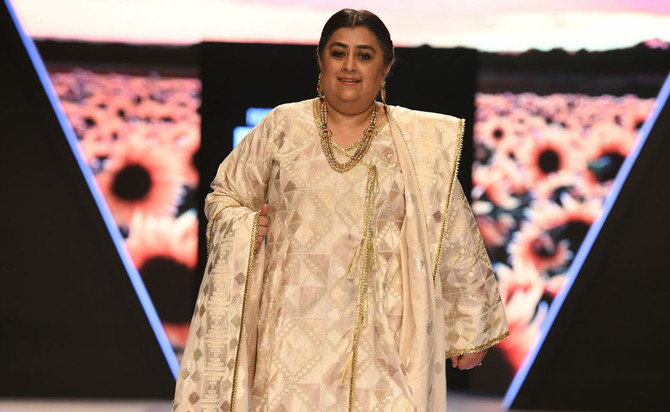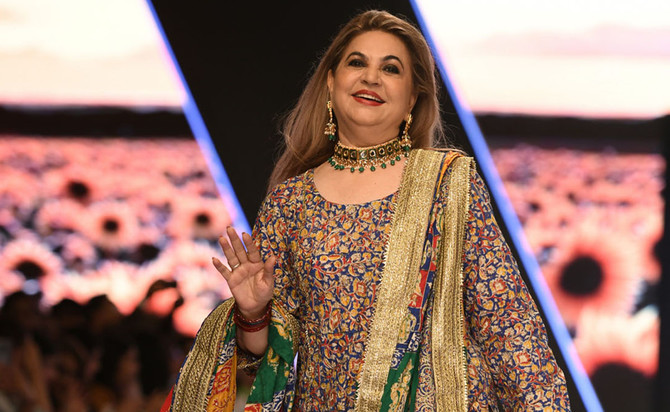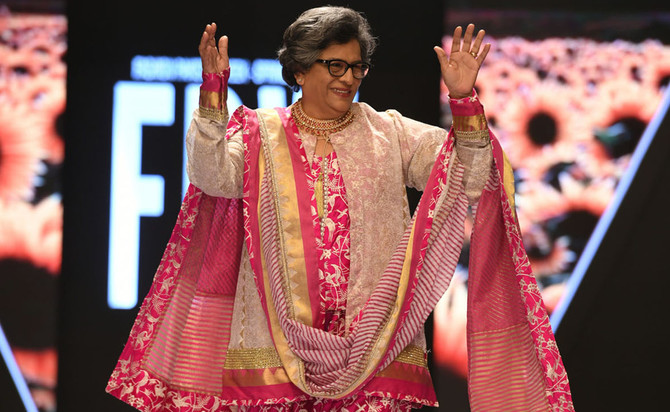ISLAMABAD: No sooner had Fashion Pakistan Week (FPW) kicked off at the Pearl Continental in Karachi than social media was flooded with images and videos from one of the most unexpectedly inspirational shows the ramp has hosted for some time.
Cheena Chhapra made her debut at FPW on April 10 with “Buxom,” a collection designed by and for plus-sized women. The models were larger women, all of them over the age of 40.
“I started designing at the age of 14, with my mother being one of my greatest inspirations,” Chhapra told Arab News. “I went to a home-economics college, which gave me a good grounding in where to start and how to stitch clothes. Now I finally got the opportunity to debut my clothes at Fashion Pakistan Week. It was exhilarating.”
The women modeling the outfits included: lawyer and activist Ayesha Tammy Haq; restaurateur Naila Naqvi; actor and producer Niggie Imtyaz; educators Hira Thimur Suri, Zehra Gheewala, Laila Dossa, Dr. Shamma Dossa and Hina Sharif; Chef Zarnak Sidhwa; actress Uroosa Siddiqui; yogi Shakila Hasan; stylist Mariam Sarwar Sheikh; chartered accountant Moneeza Usman Butt; Director of the Museum and Gallery Department of State Bank of Pakistan Asma Ibrahim; artist, and great-grandmother, Ishrat Zahid Hussain; and corporate queen Nasreen Hussain.
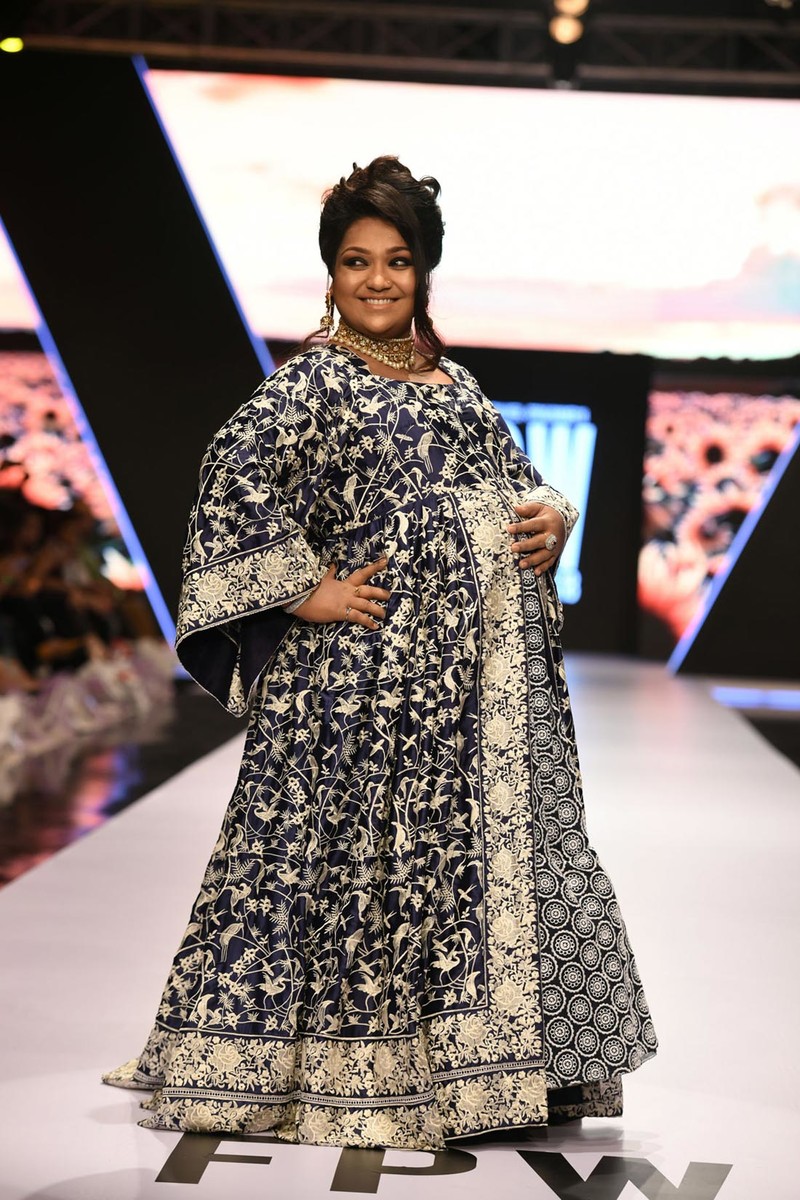
Comedian, actor, producer and mom-to-be Uroosa Siddiqui on the ramp. Siddiqui and Chhapra began their professional relationship and friendship when Chhapra was asked to design looks for the actor's many TV roles. (AN photo)
Plus-sized women are rarely, if ever, catered to in Pakistan, but that did not put off Chhapra, who was inspired by seeing how older women were expected to stay the same small size throughout their lives to enjoy the latest fashions.
“I keep saying niche — I feel like I overuse the word, but there was a market that was not being met and inclusiveness is so important,” she said. “It’s translating really well here from all the feedback I’ve gotten. Everyone is quite welcoming to the idea and this is just the beginning.
“Of course, there will be some people who disagree with me. They could be saying things like I’m trying to promote bigger sizes and, in turn, promoting an unhealthy lifestyle, but everyone has their baggage, not everyone can go to the gym on a daily basis — some have a hard life and I’m just there to make people happy.”
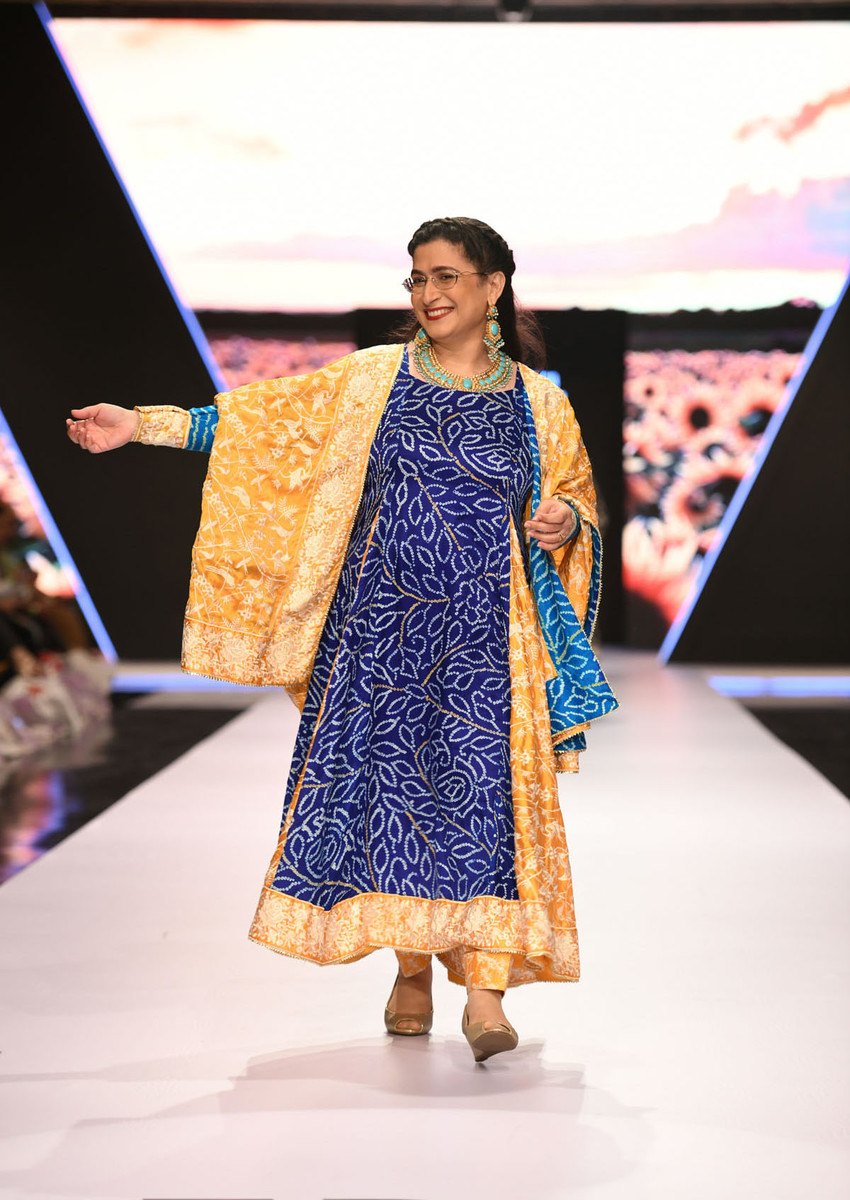
Chef Zarnak Sidhwa who is an accomplished chocolatier, was one of the women who took to the ramp for Chhapra. Sidhwa is also recognisable for her own cooking show on local television in Karachi. (AN photo)
Chhapra’s show was a joyous occasion, her own smile as wide as those of the models and the crowd. The good cheer it generated in the room was clear in the images and footage of the event.
“Self love is one of the happiest things you can provide and that’s my business, not body shaming — just letting a person know that they are beautiful in their own skin,” said Chhapra, who pointed out that her designs also look great on smaller women. “Just positive vibes, that’s the mindset I’m thriving on right now.’
Asked why she found it important to be an inclusive designer for all women, Chhapra answered with a question of her own.
‘‘Why is it not important to create for all women?” she said. “Everyone deserves the chance to be beautiful in their own skin. I provide the clothes, the women provide the magic. I believe that. I can embellish you with the most gorgeous fabrics but how you feel in them is all you. No matter what age or size, all women are included in the Cheena Chhapra brand.”
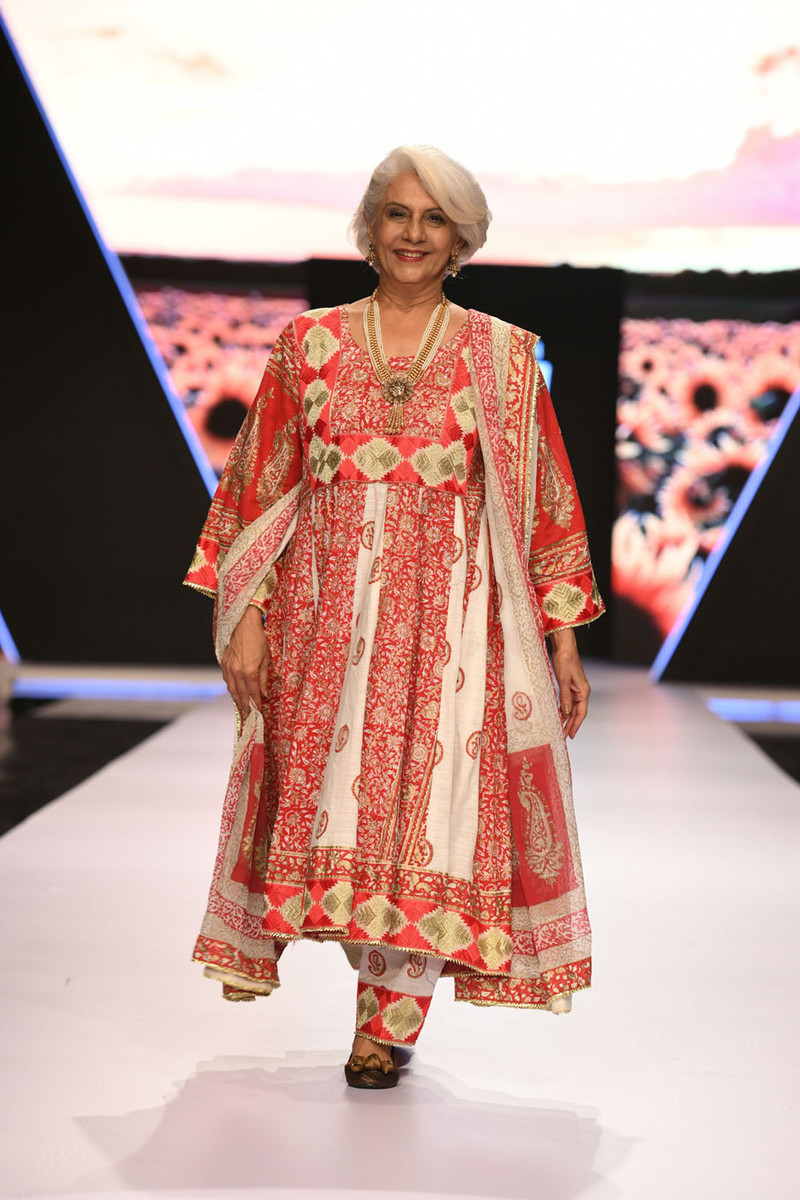
Shakila Hasan a yogi who has promoted the benefits of yoga and meditation in Pakistan for some time. (AN photo)
Chhapra is not railing against stereotypes, or trying to change the fashion industry but is simply encouraging everyone to bring out their inner beauty. Her clothes are designed for everyone and she takes great pride in making sure everyone can get the best out of themselves and feel as good as possible while wearing them.
“I’m personally not here to fit a stereotype,” she said. “I am here to make a mark, and the stereotypes that are associated with Pakistanis tend to have a more negative mental impact on the up-and-coming generation of young women and men: ‘You’re not skinny enough, you’re not fair enough, you’re too tall, you’re too short.’ Everyone is beautiful, everyone deserves a chance to feel beautiful — this is far beyond fashion.”





